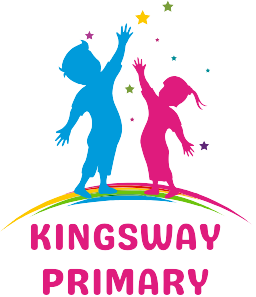Nurturing young minds and shaping tomorrow’s leaders is what Trinity Child Development Center does best. This premier early childhood education facility has become a beacon of excellence for families seeking quality care and education for their little ones.
Located in the heart of the community Trinity Child Development Center combines cutting-edge learning techniques with good old-fashioned TLC. Their dedicated team of certified educators creates an environment where children don’t just learn – they thrive. From finger painting masterpieces to early STEM discoveries little ones aged 6 weeks to 12 years find their perfect space to grow laugh and develop essential life skills.
Table of Contents
ToggleWhat Is Trinity Child Development Center
Trinity Child Development Center stands as a licensed educational facility in Dallas, Texas, providing comprehensive early childhood education programs. The center operates within a 15,000-square-foot facility equipped with modern learning tools age-appropriate play areas.
The center serves children from 6 weeks to 12 years old through developmentally appropriate programs:
- Infant Care (6 weeks – 12 months)
- Toddler Programs (12 – 24 months)
- Early Preschool (2 – 3 years)
- Pre-K Education (3 – 5 years)
- After-School Programs (5 – 12 years)
State-certified teachers implement research-based curriculum focusing on:
- Early literacy development
- Mathematics foundations
- Science exploration
- Social-emotional growth
- Physical development activities
The facility features:
- Age-separated classrooms
- Indoor activity spaces
- Secure outdoor playground
- STEM learning lab
- Library reading area
Operating hours accommodate working parents from 6:30 AM to 6:00 PM Monday through Friday. The center maintains a 1:4 teacher-to-child ratio for infants 1:8 ratio for preschoolers ensuring individualized attention.
| Program Type | Age Range | Ratio |
|---|---|---|
| Infant Care | 6 weeks – 12 months | 1:4 |
| Toddler | 12 – 24 months | 1:6 |
| Early Preschool | 2 – 3 years | 1:8 |
| Pre-K | 3 – 5 years | 1:10 |
| After-School | 5 – 12 years | 1:15 |
Our Educational Philosophy and Core Values

Trinity Child Development Center integrates Christian values with research-based educational practices to foster holistic child development. The center’s philosophy emphasizes spiritual growth alongside academic excellence creating a foundation for lifelong learning.
Faith-Based Learning Approach
Trinity incorporates biblical teachings into daily activities through age-appropriate lessons stories songs. Children explore Christian values through interactive experiences including morning devotionals group prayers themed art projects. The curriculum connects spiritual concepts to practical life applications helping children understand kindness respect responsibility compassion. Teachers guide students in developing positive character traits while celebrating individual differences cultural diversity. The program includes weekly chapel sessions interactive Bible stories faith-based music activities guided discussions about moral values.
Child-Centered Development Model
Trinity’s educational approach places each child at the center of the learning experience. Teachers observe individual learning styles interests abilities to create personalized development plans. The curriculum adapts to meet specific developmental milestones across cognitive social emotional physical domains. Children engage in hands-on activities exploring subjects through play-based learning discovery centers structured activities. The program encourages independence critical thinking problem-solving skills through guided exploration peer interaction. Multi-sensory learning experiences support different learning styles while building confidence self-expression creativity.
| Development Area | Teacher-Child Ratio | Daily Activities |
|---|---|---|
| Infants | 1:4 | 6-8 sensory activities |
| Toddlers | 1:6 | 8-10 learning centers |
| Preschool | 1:8 | 12-15 structured activities |
Programs and Age Groups
Trinity Child Development Center structures its educational programs based on developmental stages, offering specialized care for children aged 6 weeks through 12 years. Each program incorporates age-appropriate activities designed to foster growth across physical, cognitive, social and emotional domains.
Infant and Toddler Care
The infant program serves babies from 6 weeks to 18 months in a nurturing environment with a 1:4 teacher-child ratio. Caregivers follow individualized schedules for feeding, sleeping and play while documenting daily milestones through a digital parent communication app. The toddler program, for children 18-36 months, focuses on language development, sensory exploration and gross motor skills. Activities include:
- Interactive storytimes with finger plays and songs
- Guided sensory bins with varied textures and materials
- Age-appropriate art experiences using safe materials
- Basic self-help skills like hand washing and cleaning up
Preschool Program
The preschool curriculum serves children ages 3-5 years through structured learning centers and guided discovery. Teachers implement research-based lesson plans incorporating:
- Early literacy activities with letter recognition and phonics
- Mathematical concepts through hands-on manipulatives
- Science experiments and nature exploration
- Social skills development via dramatic play
- Fine motor activities preparing for writing
Each classroom maintains an 8:1 student-teacher ratio with daily progress tracking across developmental domains.
After-School Activities
The after-school program provides enrichment for elementary students ages 5-12 years. Daily activities include:
- Dedicated homework assistance with certified teachers
- STEM projects using the learning lab equipment
- Physical activities in the outdoor play space
- Arts and crafts with various mediums
- Supervised computer time for educational games
Transportation is provided from local elementary schools with flexible pickup times until 6:00 PM. Students receive healthy snacks and participate in weekly themed activities aligned with school curricula.
Qualified Teaching Staff and Leadership
Trinity Child Development Center employs 25 certified early childhood educators with an average of 12 years of teaching experience. Each staff member completes 30 hours of annual professional development in child development, safety protocols, curriculum implementation, and classroom management.
The leadership team includes:
- Director with 20+ years in early childhood education and a Master’s in Educational Leadership
- Assistant Director certified in Early Childhood Development and Special Education
- Curriculum Coordinator holding specialized certifications in STEM education and literacy development
- Four Lead Teachers with Bachelor’s degrees in Early Childhood Education
Staff qualifications include:
- State teaching certification in early childhood education
- CPR and First Aid certification renewed annually
- Background checks and fingerprinting clearances
- Child abuse prevention and recognition training
- Food safety and allergy management certification
| Position | Education Requirement | Experience Required | Staff Count |
|---|---|---|---|
| Lead Teachers | Bachelor’s Degree | 5+ years | 4 |
| Assistant Teachers | Associate’s Degree | 3+ years | 8 |
| Teacher Aides | CDA Certification | 1+ year | 13 |
Professional development opportunities incorporate:
- Monthly in-service training sessions
- Quarterly curriculum workshops
- Annual early childhood education conferences
- Ongoing mentorship programs
- Weekly team collaboration meetings
- Health insurance coverage
- Paid time off
- Continuing education reimbursement
- Performance based bonuses
- Career advancement opportunities
Facility Features and Safety Measures
Trinity Child Development Center maintains rigorous safety protocols across its 15,000-square-foot facility. Security features include biometric access control systems fingerprint scanning technology for authorized personnel entry. Each classroom contains monitoring cameras connected to a central security station.
The facility incorporates:
- Emergency backup generators powering essential systems
- Sprinkler systems throughout all indoor spaces
- Carbon monoxide detectors in strategic locations
- Child safe outlets protective covers
- Impact absorbing flooring in play areas
Indoor amenities feature:
- Age separated learning zones
- Sanitized nap areas with individual storage
- STEM discovery lab with educational technology
- Reading nooks stocked with age appropriate books
- Temperature controlled activity spaces
Outdoor spaces include:
- 5,000-square-foot fenced playground
- Rubberized safety surfaces under equipment
- Separate play areas for different age groups
- Weather protected outdoor learning stations
- Child sized playground equipment
Health protocols emphasize:
- Daily sanitization of all surfaces toys equipment
- HEPA air filtration systems in each room
- Designated sick bay for medical isolation
- Onsite first aid stations in multiple locations
- Regular health safety compliance audits
| Certification Type | Renewal Frequency | Staff Coverage |
|---|---|---|
| CPR/First Aid | Annual | 100% |
| Fire Safety | Bi-annual | 100% |
| Emergency Response | Quarterly | 100% |
Daily Schedule and Activities
Trinity Child Development Center structures each day with purposeful activities designed to maximize learning opportunities. The center’s schedule balances structured learning with creative play from 6:30 AM to 6:00 PM.
Academic Learning
Children engage in core subject activities during peak morning hours from 8:30 AM to 11:30 AM. Teachers lead small group sessions focusing on early literacy skills including letter recognition phonics reading comprehension. Math exploration incorporates counting patterns sorting spatial relationships through hands-on manipulatives. Science discovery time features weekly experiments weather tracking plant growth observation stations. Language development occurs through interactive storytelling vocabulary building activities conversation circles.
Creative Expression
Art activities run from 1:00 PM to 2:30 PM incorporating painting drawing sculpting music. Children rotate through creativity stations equipped with age-appropriate materials like washable paints modeling clay musical instruments dramatic play props. Teachers integrate seasonal themes cultural celebrations artistic techniques into daily projects. Music sessions include singing movement rhythm activities instrument exploration twice per week.
Physical Development
Outdoor playtime occurs three times daily totaling 90 minutes in dedicated playground zones. Indoor gross motor activities take place in the gymnasium during inclement weather. Children participate in structured physical activities including obstacle courses ball games dance sessions balance exercises. Fine motor development focuses on activities like beading stringing cutting pasting drawing. Teachers monitor developmental milestones through activity-based assessments tracking physical coordination strength flexibility progress.
Parent Partnership and Communication
Trinity Child Development Center maintains open communication channels through a custom parent portal accessible via mobile app or desktop. Parents receive real-time updates about their child’s daily activities, meals, naps, and learning progress.
Digital communication tools include:
- Daily activity reports with photos
- Instant messaging with teachers
- Monthly newsletters highlighting classroom achievements
- Calendar updates for events and activities
- Electronic check-in/check-out system
The center schedules quarterly parent-teacher conferences to discuss:
| Conference Focus Areas | Frequency |
|---|---|
| Developmental Progress | Every 3 months |
| Learning Goals | Every 3 months |
| Social Adaptation | Every 3 months |
| Physical Growth | Every 3 months |
Parents participate in the center’s activities through:
- Monthly family engagement events
- Classroom volunteer opportunities
- Parent advisory committee meetings
- Cultural celebration days
- Educational workshops
Trinity’s parent education program offers workshops on:
- Child development stages
- Positive discipline techniques
- Early literacy support
- Nutrition guidance
- School readiness preparation
The center’s communication policy ensures responses to parent inquiries within 2 hours during operating hours. Each classroom maintains a 1:1 ratio of scheduled parent communications per month through phone calls or in-person meetings.
Emergency notifications reach parents through multiple channels:
- Text alerts
- Email notifications
- Phone calls
- Mobile app push notifications
- Parent portal announcements
- Educational games
- Children’s books
- Parenting guides
- Development tracking tools
- Learning activity kits
Conclusion
Trinity Child Development Center stands as a beacon of excellence in early childhood education serving the Dallas community. Their comprehensive approach combines Christian values innovative learning methods and dedicated professional care to create an enriching environment where children truly thrive.
The center’s state-of-the-art facility professional staff and commitment to safety make it an ideal choice for parents seeking quality education and care for their children. Through personalized attention engaging programs and consistent parent communication Trinity ensures each child receives the foundation they need for future success.
Parents looking for a nurturing educational environment that supports their child’s cognitive social emotional and spiritual growth will find Trinity Child Development Center to be an exceptional choice for their family’s needs.



